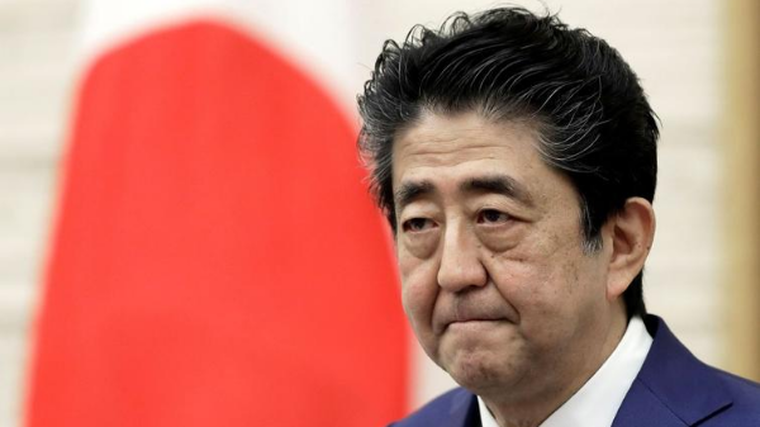Japan’s Prime Minister resigns

Shinzo Abe has announced his resignation as Japan’s prime minister citing health reasons.
He says he doesn’t want his illness to get in the way of decision-making and has apologised to his people for failing to complete his term in office.
The 65-year-old has suffered from ulcerative colitis, an inflammatory bowel disease, for many years, but his condition has worsened recently.
In 2007 he resigned abruptly from an earlier term as PM because of his struggles with the condition, which he has lived with since he was a teenager.
Last year, he became Japan’s longest-serving prime minister. His current period in office began in 2012 and he will stay on until a successor is chosen.
Abe has a reputation as a staunch conservative and nationalist, and for trying to stimulate growth with his aggressive economic policy known as “Abenomics”.
This is built on monetary easing, fiscal stimulus and structural reforms. These measures led to growth during his first term, but subsequent slowdowns have raised questions about the effectiveness of Abenomics.
Attempts to revive the economy have also faced challenges, with data released in May showing Japan had entered a recession for the first time since 2015.
He has, however, strengthened Japan’s defences and boosted military spending, but has been unable to revise the constitution’s pacifist Article 9, which bans a standing army for anything other than self-defence.
Abe’s popularity has recently been hit by concerns over his handling of the Covid-19 pandemic. Washable cloth face masks distributed by the government – dubbed “Abenomasks” – were criticised for being too small and arriving late. There have also been concerns his Go To Travel campaign aimed at boosting domestic tourism has led to a resurgence of the virus.
Abe says his health started to decline as his ulcerative colitis made a resurgence around the middle of July. He is receiving a new treatment for the condition, which needs to be administered on a regular basis and will not give him enough time to carry out his prime ministerial functions.
He adds that he cannot risk making any mistakes in terms of important decision-making. “I made a judgement I should not continue as a prime minister. I would like to sincerely apologise to the people of Japan for leaving my post with one year left and amid the coronavirus woes, while various policies are still being implemented.”
Abe says he will “firmly execute my duty to the end” until a replacement is chosen. His announcement has automatically triggered a vote within his Liberal Democratic Party (LDP) to replace him as leader.
The party will soon decide how to hold an election, which will be followed by a parliamentary vote to elect a new prime minister.
Potential successors have already emerged. They include Deputy Prime Minister Taro Aso, Chief Cabinet Secretary Yoshihide Suga and LDP policy chief Fumio Kishida, who is rumoured to be Abe’s choice.
None are expected to deviate significantly from the government’s current policies. The winner will hold the post until the end of Abe’s term in September next year.





